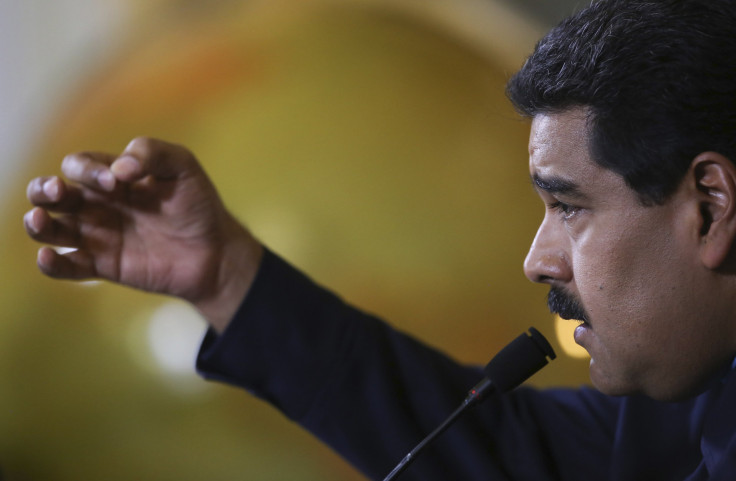US, Venezuela Launch Diplomatic Effort Amid Chill: Report

The United States and Venezuela launched efforts to restore bilateral ties that have weakened drastically in recent years, according to a media report Wednesday.
Relations between the two countries are at their coldest in years, after Washington declared a state of emergency over ongoing political and economic crisis in Venezuela and imposed sanctions against seven Venezuelan officials in March. Venezuela, in response, accused the U.S. of imperialism and launched a signature-collecting campaign to pressure Washington into revoking its decision.
However, an anonymous American official told Reuters that the U.S. was in the early stages of increasing its diplomatic engagement with Venezuela, a move that comes at a time when the country is moving toward a historic détente with Cuba. The U.S. and Cuba announced the formal restoration of diplomatic ties on Wednesday.
"He realized that if we can talk to the Cubans, we can talk to him," the official reportedly said, adding: "We approached it very carefully because we had seen this before, but there was also U.S. concern that the relationship was reaching such a dangerous point that it risked breaking completely."
Venezuela also has been making overtures toward the U.S., despite the strongly anti-American stance of Venezuelan President Nicolas Maduro. The U.S. official reportedly said that Maduro had requested a “direct channel of communication” with U.S. President Barack Obama. Officials from the two countries also held a closed high-level meeting in Haiti earlier in June, which earned criticism from Venezuelan rights groups because of the government's dismal human rights record. Officials from the two nations also met in April.
“[T]he United States looks to increase business with Venezuela and normalize relations, when today there are 96 Venezuelan political prisoners, dozens under house arrest and hundreds on probation,” Venezuela Awareness, a Miami-based organization focused on human rights in Venezuela, wrote in a statement last month.
Venezuela’s economy has been severely harmed by the fall in oil prices and the lack of access to foreign currency, which has led to triple-digit inflation and left its citizens facing critical shortages of goods including milk and toilet paper.
U.S. Senate Foreign Relations Committee Chairman Bob Corker made a surprise visit to Venezuela on Tuesday to meet with members of the opposition, the Associated Press reported. Washington has condemned Venezuela’s arrest of opposition figures and the country's alleged political repression.
Analysts reportedly say that the current economic crisis is giving the opposition figures popular support for parliamentary elections scheduled for December, which could pave the way for a referendum that would end Maduro’s presidency before his term expires in 2019.
Public support for Maduro’s administration has fallen dramatically over the last three years, and polls indicate that the opposition is set to take a majority of seats in the parliament.
© Copyright IBTimes 2024. All rights reserved.











